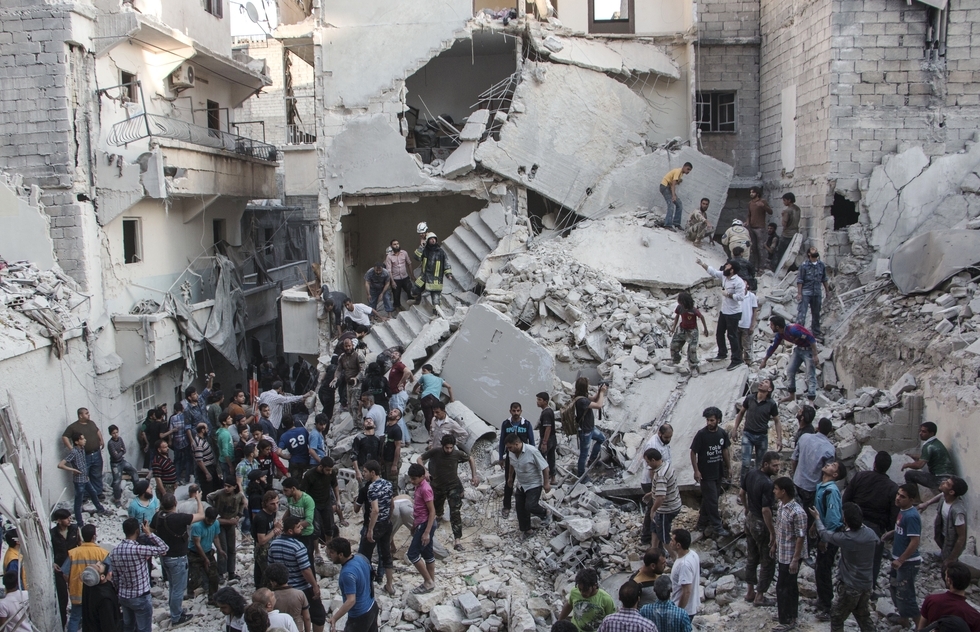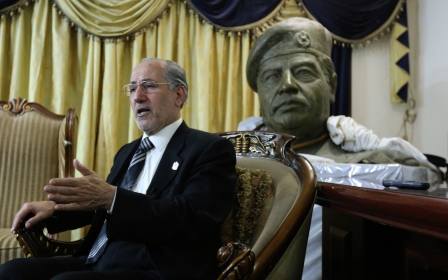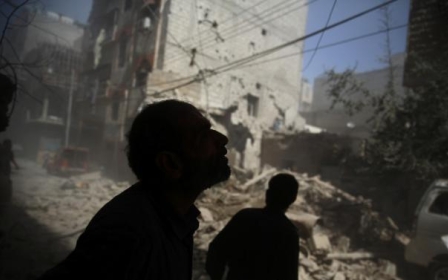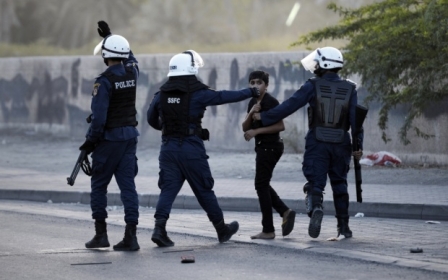Western trio seeks UN action on Syria barrel bombs

Britain, France and Spain will soon present a draft resolution to the UN Security Council on stopping the Syrian military from using barrel bombs, the French envoy said on Thursday.
But it remains highly unlikely that Russia, Syria's ally, would support such a measure, which comes amid fierce Western criticism of Moscow's air war in Syria.
French Ambassador Francois Delattre told the 14-member council that barrel bombs were a "weapon of terror" that was fueling the exodus of refugees to neighbouring countries and to Europe.
"It is the immediate responsibility of the Security Council to take measures to effectively end the use of this terrible weapon in Syria," said Delattre.
"France, acting with Britain and Spain, will soon make concrete proposals to its partners to this end."
A diplomat told AFP that a draft resolution will be presented to the council "before the end of the month".
Russia maintains it is working with the Syrian regime to defeat Islamic State (IS) fighters, but Moscow has been accused of targeting rebel groups supported by the West.
In an indirect swipe at Russia, Delattre said "supporting Bashar al-Assad to push back the terrorists is a false solution that will only strengthen Daesh (IS) and prolong the tragedy."
Number one killer
Human rights groups say barrel bombings by government forces are the number one killer in the four-year war, claiming more civilian lives than IS attacks.
In September alone, the Assad regime dropped 1,715 barrel bombs, hitting mosques, hospitals, schools and other civilian sites, US Ambassador Samantha Power said, citing the Syrian Network for Human Rights.
Power said the Russian campaign had "worsened an already dire situation" and that the conflict "will not end until Syria is free of Assad".
More than 240,000 people have died in the conflict, and nearly 12 million people - half of the country's population - have been driven from their homes.
The council adopted a resolution in February 2014 demanding an end to the bombings that the West says are carried out by Damascus using helicopters to drop barrels rigged with explosives.
But there has been no action to enforce the measure by the council, where veto-wielding Russia has in the past blocked resolutions targeting Assad.
Human rights groups have called for a no fly-zone to prevent the helicopters from dropping the barrel bombs, but that remains a difficult prospect during the Russian air campaign.
Russian President Vladimir Putin last month proposed a draft resolution on strengthening the fight against IS but with the consent of the Syrian regime, a measure rejected by France, Britain and the United States.
After weeks of negotiations, diplomats said Russia had failed to garner the nine votes necessary to pass the text at the council, even without a veto threat from the Western powers.
New MEE newsletter: Jerusalem Dispatch
Sign up to get the latest insights and analysis on Israel-Palestine, alongside Turkey Unpacked and other MEE newsletters
Middle East Eye delivers independent and unrivalled coverage and analysis of the Middle East, North Africa and beyond. To learn more about republishing this content and the associated fees, please fill out this form. More about MEE can be found here.




